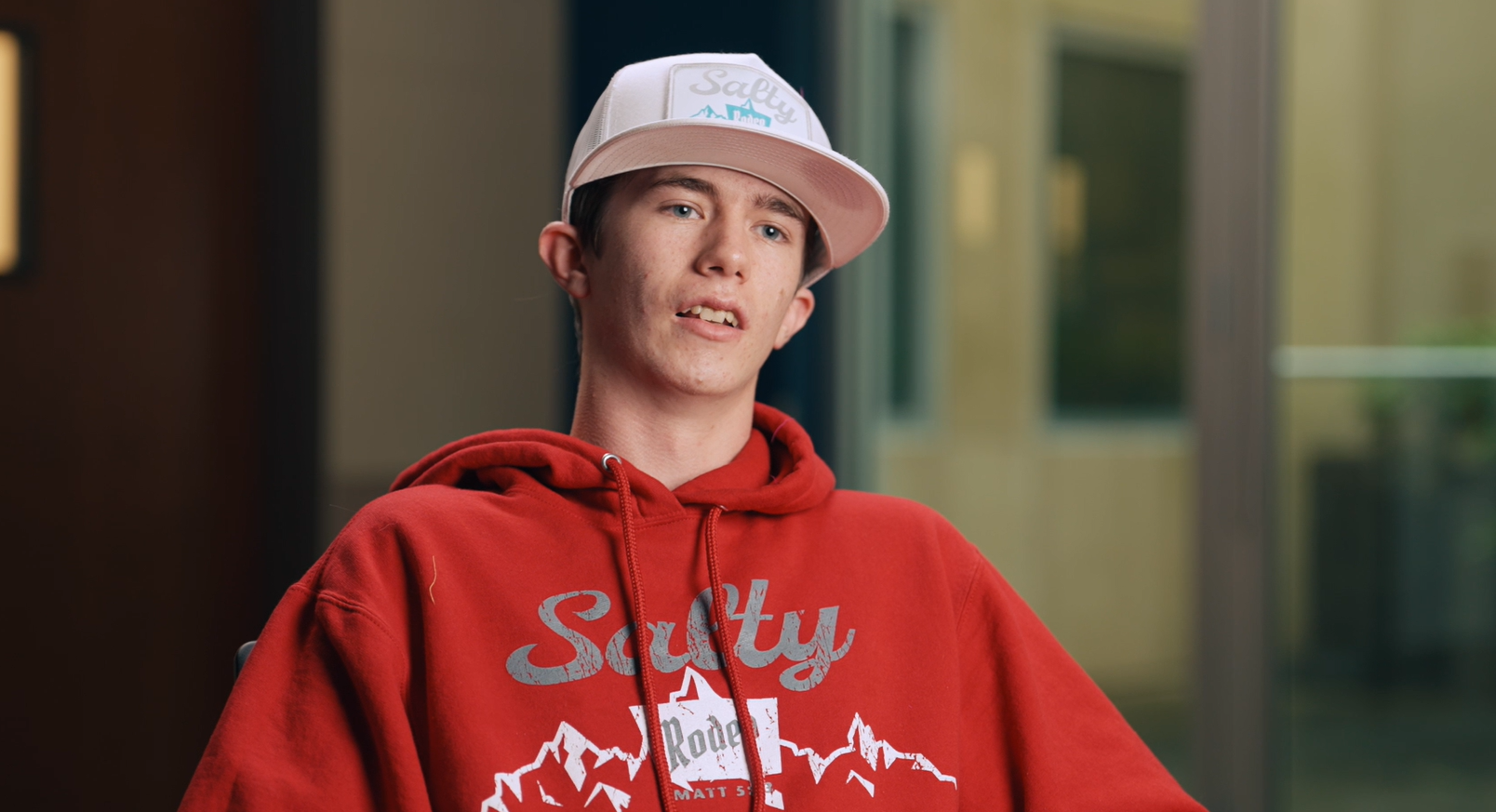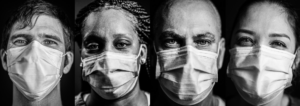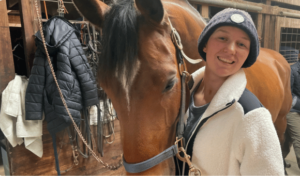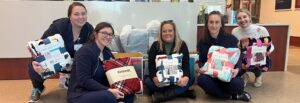Brain Injury Recovery Story: Walker Smith

Back to physical health resource hub
Experience the incredible recovery story of Walker Smith, who overcame life-altering injuries from a severe bull-riding accident. Unable to walk or care for himself, Walker began his rehabilitation at Brooks Rehabilitation Pediatric Inpatient Program, supported by a team of dedicated experts and therapists. Through perseverance and the compassionate care he received, Walker rebuilt his strength and regained his independence.
Transcript of Walker Smith’s recovery story
Walker Smith:
When I first got to Brooks, I couldn’t even walk on my own. I couldn’t use the bathroom on my own, I couldn’t do nothing. I actually feel independent now. I can do all this stuff on my own now, so I’m really thankful.
My name is Walker Smith and I’m a professional bull rider.
Daniel Smith:
Walker’s success came not overnight. Like most people, it came through hard work, perseverance, more knockdowns than anybody should ever face. But with the determination he has, no wonder he’s successful.
2022, he won the Kissimmee Junior Bull Riding Championship. He won the North Florida Tri-State Championship. He’s won buckles from Amris, the St. Jude’s title.
Walker Smith:
It was just another day at a rodeo. I just got on my bull, tied my hand, then nodded my head.
You can feel it when you start coming off. You’re like, “Oh, I’m fixing to get stepped on.” And then I saw his hooves come right in front of my face. I was like, “There it is.” And then I wake up in a different spot to my friend’s dad clapping in my face trying to wake me up.
Allison Wessner, MD:
Walker’s injuries, he was in the middle of a competition, he got thrown from the bull, and then the bull kicked him in the chest. And just because of that force, that pressure, the blood had nowhere to go, and so it caused micro-strokes within the pontine area of his brain, which is primarily responsible for breathing, swallowing, balance.
Daniel Smith:
Nobody gave us a whole lot of information, other than he’s been stepped on, but now they’re airlifting him. Walker went into a locked-in state, which they gave him 1% to come out of that. Basically overall, a 10% chance of even living. Within the first week, they were coming in ready to call hospice in and ready to call it quits.
One point, he was on the ventilator. Walker was still doing 60, 70% of the work. When two weeks arrived, the doctors and all looked at us and told us there was nothing they could do for him, that we should start praying because he’s not going to make it out of here. And my faith lit up in me like a Christmas tree, and I said, “I rebuke you in the name of Jesus. I ain’t got to accept that.” So, I went and prayed.
The next morning after we prayed, Walker started moving his arms and legs. Within a week or so, the liaison Colm, he comes in, which if I ever see the guy again, I’m going to hug him like crazy. But he walked over to Walker and he said, “Move your arms and legs.” He moved his arms and legs. And he said, “You’re coming to Brooks.” I said, “I don’t even know what Brooks is.” And he said, “You’re coming to Brooks.”
Allison Wessner, MD:
My initial assessment of Walker when he came to Brooks was the day after he had been admitted. And I’d walked into his room hearing about this competitive bull rider. And I just kind of knew that I was going to have a patient that was ready to fight and really medically doing very well, considering everything that had happened.
Daniel Smith:
You never think about how tough your kid is. As a father, you do, I mean, you try. And then you see what he’s been through, the bull riding accidents, the getting drug around the arena and walking out, being tough. That’s cowboy tough. This is a whole different tough. And the biggest part for me is his perseverance, how tough he is. Then you realize how strong he is.
Walker Smith:
Mr. Dylan, he has been honestly, really impactful in my journey. He’s been here the whole way, helping me the whole time. I really appreciate him helping me. I’m really thankful.
Daniel Smith:
Dylan and Alyssa and Stephanie, they didn’t take a light on him. Dylan told him, he says, “If you’re ever going to walk on your own, you better start trying.” I’ll never forget that day.
Walker Smith:
They were always driving me to do better. And then Stephanie was like, she always had fun stuff we need to do.
Stephanie Judycki, OTD, OTR/L:
Out, in. Out, in. Out, in. Two more. Out, in, out, in. Out arms. Out.
Walker Smith:
My friends, they put on a bull riding benefit to raise money for me. We actually told Stephanie and Alyssa about it. I was really happy they were able to come.
Daniel Smith:
I don’t know if anybody think he’d be fully recovered. Usually, there’s some lasting effect or something of this. But I’ll tell you what, the team went to work and man, did they ever overachieve. The therapists, nurses, even the doctors. Dr. Wessner was great. I believe that Brooks finds the best therapists in the world. I’ll put this rehab facility up against anybody in the world.
Allison Wessner, MD:
As far as the team aspect of Brooks, it’s remarkable to be a part of. I am so blessed to be in this position. For Walker, I even wanted to kind of give him a pass ’cause he was here over the holidays for Christmas. And they were so determined to just not lose any ground that they didn’t even want to leave for that. So, that just speaks volumes to me that they thought of Brooks as their family. And I was just privileged to be a part of it.
Walker Smith:
I would like to say thank you to all the therapists at Brooks and all the employees. Everybody was so nice and they helped my progress a lot. They helped me get rehab a lot faster, even the nurses. So, I’m really appreciative for all of them.
How Brooks Rehabilitation can help
Learn more about our Brain Injury Treatment Program or request information about care and treatment programs at Brooks on our Request Care page.


